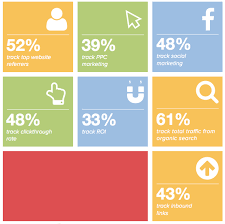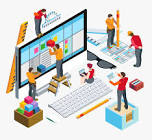Application Developers: Building the Digital Future
In today’s digital age, application developers play a crucial role in shaping our technological landscape. They are the architects behind the software applications that power our smartphones, tablets, computers, and even smart devices in our homes. These skilled professionals possess the unique ability to transform ideas into functional and user-friendly applications that enhance our daily lives.
Application developers are responsible for designing, coding, testing, and maintaining software applications across various platforms. They possess a deep understanding of programming languages such as Java, Python, C++, or Swift and utilize their expertise to create intuitive interfaces and seamless user experiences. Their work ranges from developing mobile apps for entertainment and social media to building enterprise-level software solutions that streamline business operations.
The importance of application developers cannot be overstated. They enable businesses to connect with customers through innovative mobile apps, providing convenience and accessibility at users’ fingertips. Whether it’s ordering food, booking a ride, or managing finances, these applications have revolutionized how we interact with services.
Moreover, application developers contribute significantly to the growth of e-commerce by creating secure and reliable platforms for online shopping. They ensure that transactions are smooth and secure while integrating features like personalized recommendations or easy payment options.
Beyond consumer-focused applications, developers also play a critical role in industries such as healthcare, education, transportation, and finance. They build customized software solutions that optimize processes, improve efficiency, and enhance data security.
In recent years, the field of application development has witnessed significant advancements due to emerging technologies like artificial intelligence (AI), augmented reality (AR), virtual reality (VR), and blockchain. Application developers harness these technologies to create immersive experiences or implement secure decentralized systems.
To stay ahead in this rapidly evolving field, application developers must continuously update their skills and knowledge. They need to adapt to new programming languages or frameworks while keeping up with industry trends. Collaboration is also vital as they often work closely with designers, project managers, and quality assurance teams to ensure a seamless development process.
In conclusion, application developers are the driving force behind the digital revolution. Their expertise and creativity shape the way we interact with technology on a daily basis. From mobile apps to enterprise solutions, they bring ideas to life and empower businesses and individuals alike. As technology continues to advance, the role of application developers will only become more critical in building the digital future we envision.
9 Frequently Asked Questions About Application Developers: Answered
- What skills do I need to become an application developer?
- What is the best programming language for app development?
- How much does it cost to hire an application developer?
- What platforms do application developers use?
- How long does it take to develop an app?
- How can I find a good application developer?
- What are the benefits of hiring an application developer?
- Are there any certifications needed for app development?
- What type of projects can application developers work on?
What skills do I need to become an application developer?
Becoming an application developer requires a combination of technical skills, problem-solving abilities, and a passion for continuous learning. Here are some essential skills to consider:
- Programming Languages: Proficiency in programming languages is fundamental for application development. Depending on the platform and type of applications you want to build, you may need to learn languages like Java, Python, C++, Swift, or JavaScript.
- Mobile Development: If you’re interested in mobile app development, knowledge of frameworks such as Android (Java/Kotlin) or iOS (Swift/Objective-C) is crucial. Understanding the specific design principles and guidelines for each platform is also important.
- Web Development: Familiarity with web technologies like HTML, CSS, and JavaScript is essential for developing web applications. Additionally, knowledge of frameworks like React.js or Angular.js can enhance your web development capabilities.
- Database Management: Understanding database concepts and SQL (Structured Query Language) is vital for creating efficient data storage and retrieval systems within applications.
- User Interface (UI) and User Experience (UX) Design: Application developers should have a good understanding of UI/UX principles to create visually appealing and user-friendly interfaces that provide a seamless user experience.
- Problem Solving and Logical Thinking: Application developers often encounter complex challenges that require logical thinking and problem-solving skills. The ability to break down problems into smaller components and devise effective solutions is crucial.
- Version Control Systems: Proficiency in using version control systems like Git allows developers to collaborate effectively with other team members while keeping track of changes made to the codebase.
- Testing and Debugging: A strong foundation in testing methodologies enables developers to identify issues early on and ensure the quality of their applications through effective debugging techniques.
- Continuous Learning: The field of application development is constantly evolving, so a willingness to learn new technologies, frameworks, and programming languages is essential for staying up-to-date with industry trends.
- Communication and Collaboration: Application developers often work in teams, so effective communication and collaboration skills are necessary to coordinate with designers, project managers, and other stakeholders.
Remember that while technical skills are crucial, a passion for problem-solving, creativity, attention to detail, and the ability to adapt to new technologies are equally important for success as an application developer. Continuously expanding your skill set and staying curious will help you thrive in this dynamic field.
What is the best programming language for app development?
The choice of programming language for app development depends on several factors, including the specific requirements of the project, the target platform, and the developer’s familiarity and expertise. Here are some popular programming languages commonly used in app development:
- Java: Java is a versatile language widely used for Android app development. It offers a large ecosystem of libraries and frameworks, making it easier to build robust and scalable applications.
- Swift: Swift is the primary programming language for developing iOS and macOS applications. It is known for its simplicity, safety features, and performance optimizations.
- Kotlin: Kotlin is a modern programming language that has gained popularity for Android app development due to its concise syntax, enhanced safety features, and seamless interoperability with existing Java codebases.
- Objective-C: Objective-C is an older language primarily used for iOS app development. It still plays a role in maintaining legacy codebases or when working with certain frameworks that have not been migrated to Swift yet.
- JavaScript: JavaScript is a versatile language used for web development but also finds application in hybrid mobile app development frameworks like React Native or Ionic. It allows developers to build cross-platform apps using web technologies.
- C#: C# (pronounced C-sharp) is Microsoft’s programming language primarily used with their .NET framework for Windows app development. It provides extensive tools and libraries for building desktop or UWP (Universal Windows Platform) apps.
- Python: Python offers simplicity and readability, making it an excellent choice for rapid prototyping or scripting tasks in mobile app development. It can be integrated into mobile applications through frameworks like Kivy or BeeWare.
It’s important to note that there isn’t one “best” programming language for all scenarios as each has its own strengths and weaknesses depending on the project requirements and target platform. A developer’s familiarity with a particular language also plays a significant role in their productivity and efficiency during the development process.
How much does it cost to hire an application developer?
The cost of hiring an application developer can vary depending on several factors. These factors include the developer’s experience and skill level, the complexity of the project, the location of the developer, and the specific requirements of the job.
In general, application developers are typically paid either on an hourly basis or a fixed project rate. Hourly rates can range from $50 to $200 or more, depending on the developer’s expertise and location. Keep in mind that rates can be higher for developers with specialized skills or extensive experience.
For fixed project rates, costs will depend on the scope and complexity of the project. Small-scale applications may start at a few thousand dollars, while larger and more complex projects can reach tens or even hundreds of thousands of dollars.
It’s important to note that these figures are just general estimates and can vary significantly. Additionally, different regions may have different pricing structures based on local market conditions and cost of living.
When hiring an application developer, it is crucial to consider not only the cost but also their expertise, portfolio, and track record. Quality should be a priority when selecting a developer as it can greatly impact the success and functionality of your application.
To get an accurate cost estimate for your specific project, it is advisable to consult with multiple developers or development agencies. They can provide you with detailed proposals based on your requirements and provide insights into potential costs involved in bringing your application idea to life.
What platforms do application developers use?
Application developers utilize a variety of platforms and tools to create software applications across different devices and operating systems. Here are some of the commonly used platforms in application development:
Mobile Platforms: Application developers often develop apps specifically for mobile devices, such as smartphones and tablets. The two dominant mobile platforms are:
a. iOS: Developers use Apple’s iOS platform, which requires knowledge of programming languages like Swift or Objective-C, along with development tools like Xcode.
b. Android: Android, developed by Google, is another popular platform for app development. It utilizes Java or Kotlin programming languages and tools like Android Studio.
Web Platforms: Web application developers focus on creating applications that run within web browsers. They use technologies such as HTML, CSS, and JavaScript to build web-based applications that can be accessed across different devices and browsers.
Desktop Platforms: Application developers also create software applications for desktop computers using specific platforms such as:
a. Windows: Developers can use Microsoft’s .NET framework with languages like C# or Visual Basic to build Windows desktop applications.
b. macOS: Apple’s macOS provides a platform for developing desktop applications using languages like Swift or Objective-C in Xcode.
c. Linux: Developers can build desktop applications for various Linux distributions using programming languages such as C++, Python, or Java.
Cross-Platform Development Tools: To streamline the development process and target multiple platforms simultaneously, developers often leverage cross-platform development tools/frameworks that allow them to write code once and deploy it across multiple platforms. Some popular cross-platform tools include:
a. React Native: This JavaScript framework allows developers to build mobile apps compatible with both iOS and Android using a single codebase.
b. Xamarin: Owned by Microsoft, Xamarin enables developers to create native mobile apps using C# language that can run on iOS, Android, and Windows devices.
c. Flutter: Developed by Google, Flutter is an open-source framework that uses Dart programming language to build cross-platform mobile, web, and desktop applications.
These are just a few examples of the platforms and tools application developers use. The choice of platform depends on the target audience, project requirements, and developer preferences.
How long does it take to develop an app?
The amount of time it takes to develop an app varies depending on the complexity of the app, the development process, and the resources available. Generally speaking, it can take anywhere from a few weeks to several months to develop a basic app. More complex apps may take longer.
How can I find a good application developer?
Finding a good application developer can be a crucial step in bringing your software ideas to life. Here are some tips to help you find the right developer for your project:
- Define your project requirements: Before starting your search, clearly define your project requirements, including the platform (iOS, Android, web), desired features, timeline, and budget. Having a clear understanding of what you need will help you identify developers with the relevant skills and experience.
- Seek recommendations: Ask for recommendations from colleagues, friends, or business contacts who have previously worked with application developers. Personal referrals can provide valuable insights into a developer’s competence, work ethic, and communication skills.
- Research online platforms: Explore online platforms such as freelance websites (e.g., Upwork, Freelancer) or developer communities (e.g., GitHub) where you can find experienced application developers. Review their profiles, portfolios, and client feedback to gauge their expertise and track record.
- Attend tech events or conferences: Participate in local tech events or conferences where you can meet developers face-to-face. Engage in discussions and networking opportunities to connect with talented professionals who may be interested in working on your project.
- Check professional networks: Utilize professional networks like LinkedIn to search for application developers with relevant skills and experience. Review their profiles, work history, endorsements, and recommendations to assess their credibility.
- Evaluate portfolios and past projects: Look for developers who have worked on projects similar to yours or have experience in your industry. Review their portfolios or ask for samples of their previous work to evaluate the quality of their applications and user experiences.
- Conduct interviews: Once you shortlist potential candidates, conduct interviews to assess their technical skills, problem-solving abilities, communication style, and compatibility with your project requirements. Ask about their development process and how they handle challenges that may arise during development.
- Testimonials and references: Request testimonials or references from their previous clients. Reach out to those references to gain insights into the developer’s professionalism, reliability, and ability to meet deadlines.
- Consider cultural fit: A good application developer not only possesses technical skills but also understands your vision and can collaborate effectively. Look for someone who aligns with your company culture and values.
- Start with a small project: If you are unsure about committing to a long-term project, consider starting with a smaller pilot project or a trial period to assess the developer’s capabilities and compatibility with your team.
Remember, finding the right application developer is a critical decision that can significantly impact the success of your project. Take the time to thoroughly evaluate candidates and choose someone who not only possesses the necessary technical skills but also fits well with your project requirements and team dynamics.
What are the benefits of hiring an application developer?
Hiring an application developer can bring numerous benefits to businesses and individuals alike. Here are some key advantages of hiring an application developer:
- Expertise and Technical Skills: Application developers possess specialized knowledge and technical skills in programming languages, frameworks, and software development methodologies. Their expertise allows them to create high-quality, efficient, and scalable applications tailored to specific requirements.
- Customized Solutions: Hiring an application developer enables you to have a custom-built application that aligns with your unique needs and goals. They can understand your business processes or personal requirements and develop a solution that addresses specific pain points or enhances efficiency.
- Time and Cost Savings: Developing an application in-house requires significant time, effort, and resources. By hiring an application developer, you can save time by leveraging their expertise and experience. Additionally, outsourcing development can often be more cost-effective than maintaining an in-house team.
- Focus on Core Competencies: Outsourcing application development allows businesses to focus on their core competencies while leaving the technical aspects in the hands of experts. This enables organizations to allocate resources efficiently and concentrate on strategic initiatives rather than getting caught up in the complexities of software development.
- Access to Latest Technologies: Application developers stay updated with the latest trends, technologies, and industry best practices. By hiring them, you gain access to their knowledge base, ensuring that your application is built using cutting-edge technologies that enhance its functionality and user experience.
- Quality Assurance: Application developers have expertise in testing methodologies to ensure that the developed applications are robust, secure, bug-free, and meet quality standards. They conduct thorough testing throughout the development process to identify any issues or bugs early on.
- Ongoing Support and Maintenance: After developing your application, a dedicated developer can provide ongoing support for bug fixes, updates, enhancements, or troubleshooting any issues that may arise post-launch. This ensures the smooth functioning of your application over time.
- Innovation and Creativity: Application developers bring a fresh perspective to your project and can offer innovative ideas to enhance the user experience or introduce new features. Their creativity can help differentiate your application in a competitive market.
In summary, hiring an application developer brings expertise, customization, cost savings, and access to the latest technologies. It allows you to focus on your core competencies while ensuring the development of high-quality applications that meet your specific needs. Whether you are a business or an individual, hiring an application developer can be a valuable investment in achieving your goals.
Are there any certifications needed for app development?
Yes, there are several certifications available for app development that can enhance a developer’s credentials and showcase their expertise in specific areas. These certifications not only validate a developer’s skills but also demonstrate their commitment to professional growth and staying updated with the latest industry standards. Here are a few notable certifications for app development:
- Apple Certified iOS Developer (ACiOSD): This certification is offered by Apple and focuses on iOS app development using Swift programming language. It demonstrates proficiency in building, testing, and submitting apps to the App Store.
- Google Associate Android Developer (GAAD): This certification, offered by Google, validates the skills required to build Android apps using Java or Kotlin programming languages. It covers topics such as user interface design, data storage, and debugging.
- Microsoft Certified: Azure Developer Associate: This certification is for developers working with Microsoft Azure cloud platform. It showcases proficiency in designing, building, and deploying scalable applications on Azure.
- Salesforce Certified Platform App Builder: This certification is aimed at developers working on the Salesforce platform. It demonstrates expertise in designing custom applications using declarative features like point-and-click tools.
- AWS Certified Developer – Associate: Offered by Amazon Web Services (AWS), this certification validates skills in developing applications on the AWS platform using services like AWS Lambda, DynamoDB, and S3 storage.
- Xamarin Certified Mobile Developer: Xamarin offers certifications for developers specializing in cross-platform mobile app development using C# programming language. These certifications demonstrate proficiency in building native-like apps for iOS, Android, and Windows platforms.
- Oracle Certified Professional (OCP) – Java SE Developer: This certification is for Java developers who want to showcase their expertise in Java Standard Edition (SE) development and gain recognition from Oracle.
These are just a few examples of certifications available for app development across different platforms and technologies. It’s important to note that while certifications can provide credibility and demonstrate knowledge, they are not the sole measure of a developer’s capabilities. Practical experience, portfolio projects, and continuous learning are equally valuable in the field of app development.
What type of projects can application developers work on?
Application developers have a wide range of projects they can work on, catering to various industries and user needs. Here are some examples:
- Mobile Applications: Application developers can create mobile apps for iOS, Android, or cross-platform frameworks like React Native or Flutter. These apps can be anything from social media platforms, entertainment apps, productivity tools, e-commerce solutions, or even games.
- Web Applications: Developers can build web-based applications that run on browsers and provide functionality similar to traditional desktop applications. These applications can be used for e-commerce platforms, content management systems (CMS), customer relationship management (CRM) tools, or collaboration platforms.
- Enterprise Software: Application developers often work on large-scale software solutions that streamline business operations and improve efficiency. This includes developing enterprise resource planning (ERP) systems, supply chain management software, human resources management systems (HRMS), or project management tools.
- Internet of Things (IoT): With the rise of smart devices and connected technologies, application developers contribute to IoT projects by creating applications that interact with and control IoT devices. This can include home automation apps, wearable technology apps, or industrial IoT solutions.
- Augmented Reality (AR) and Virtual Reality (VR): Developers in this field work on projects that involve creating immersive AR/VR experiences for gaming, education, training simulations, virtual tours, or architectural visualization.
- Data Analytics and Visualization: Application developers can work on projects involving data analysis and visualization tools that help businesses make informed decisions based on data insights. This includes dashboards, reporting systems, data mining applications, or predictive analytics tools.
- Security Applications: Developers play a crucial role in building secure applications that protect sensitive data and prevent cyber threats. They develop encryption software, authentication systems, network security tools, or antivirus programs.
- Educational Applications: Developers contribute to the education sector by creating interactive learning apps for students of all ages. These apps can cover subjects like language learning, STEM education, online courses, or virtual classrooms.
- Health and Fitness Applications: Developers work on health and fitness apps that track activities, provide workout routines, monitor vital signs, or offer personalized diet plans.
These are just a few examples of the diverse projects application developers can work on. The possibilities are virtually endless, as technology continues to evolve and new opportunities arise in different industries.




